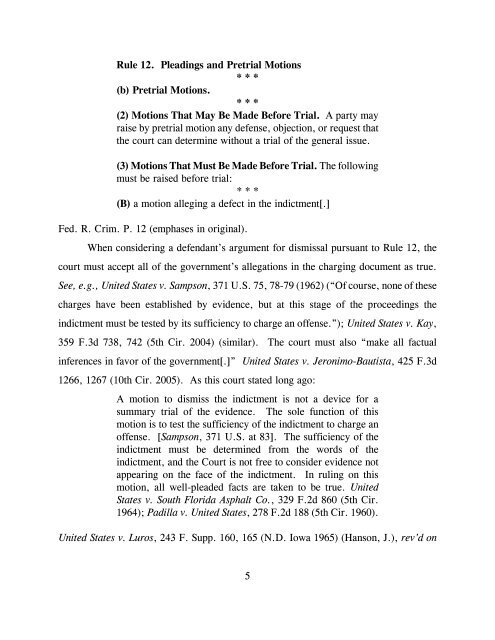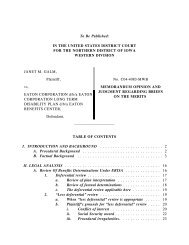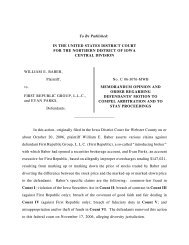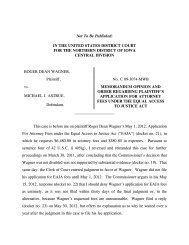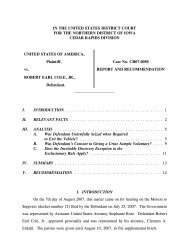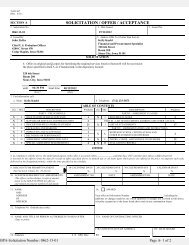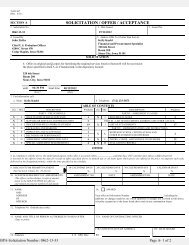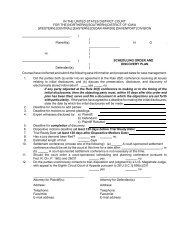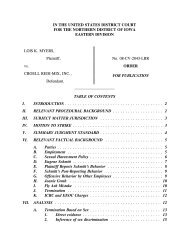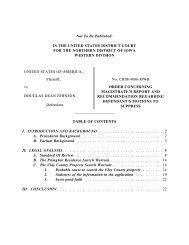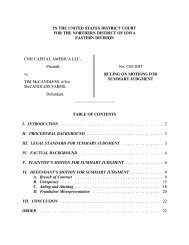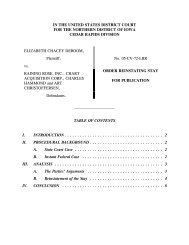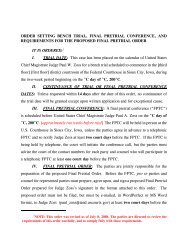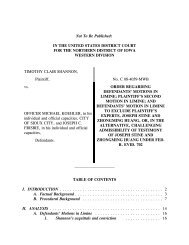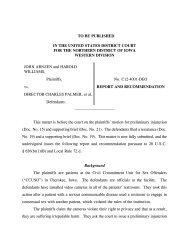IN THE UNITED STATES DISTRICT COURT FOR THE NORTHERN ...
IN THE UNITED STATES DISTRICT COURT FOR THE NORTHERN ...
IN THE UNITED STATES DISTRICT COURT FOR THE NORTHERN ...
You also want an ePaper? Increase the reach of your titles
YUMPU automatically turns print PDFs into web optimized ePapers that Google loves.
Rule 12. Pleadings and Pretrial Motions<br />
* * *<br />
(b) Pretrial Motions.<br />
* * *<br />
(2) Motions That May Be Made Before Trial. A party may<br />
raise by pretrial motion any defense, objection, or request that<br />
the court can determine without a trial of the general issue.<br />
(3) Motions That Must Be Made Before Trial. The following<br />
must be raised before trial:<br />
* * *<br />
(B) a motion alleging a defect in the indictment[.]<br />
Fed. R. Crim. P. 12 (emphases in original).<br />
When considering a defendant’s argument for dismissal pursuant to Rule 12, the<br />
court must accept all of the government’s allegations in the charging document as true.<br />
See, e.g., United States v. Sampson, 371 U.S. 75, 78-79 (1962) (“Of course, none of these<br />
charges have been established by evidence, but at this stage of the proceedings the<br />
indictment must be tested by its sufficiency to charge an offense.”); United States v. Kay,<br />
359 F.3d 738, 742 (5th Cir. 2004) (similar). The court must also “make all factual<br />
inferences in favor of the government[.]” United States v. Jeronimo-Bautista, 425 F.3d<br />
1266, 1267 (10th Cir. 2005). As this court stated long ago:<br />
A motion to dismiss the indictment is not a device for a<br />
summary trial of the evidence. The sole function of this<br />
motion is to test the sufficiency of the indictment to charge an<br />
offense. [Sampson, 371 U.S. at 83]. The sufficiency of the<br />
indictment must be determined from the words of the<br />
indictment, and the Court is not free to consider evidence not<br />
appearing on the face of the indictment. In ruling on this<br />
motion, all well-pleaded facts are taken to be true. United<br />
States v. South Florida Asphalt Co., 329 F.2d 860 (5th Cir.<br />
1964); Padilla v. United States, 278 F.2d 188 (5th Cir. 1960).<br />
United States v. Luros, 243 F. Supp. 160, 165 (N.D. Iowa 1965) (Hanson, J.), rev’d on<br />
5


